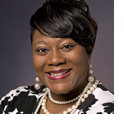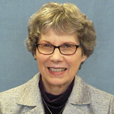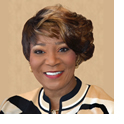
A Note from Ujima Donalson,
POD Director
What a remarkable time! Since January, four deans, one chancellor, one vice provost, one vice president, and one ombud have joined the University—and most of these new leaders have come to us from outside the UW. Such a sea change in University leadership is incredibly exciting, but having someone new at the helm—let alone numerous new people on board—also tends to trigger concerns about change, strategic direction, the future, and other unknowns.
In Managing Transitions, William Bridges coined the time and space between one thing ending and another beginning the "neutral zone." The neutral zone, of course, feels anything but neutral to most. It’s an ambiguous time during which you’re likely to see anxiety rise, motivation fall, turnover increase, organizational weaknesses surface, and interpersonal relationships grow tense, just to name a few possible byproducts. It sounds daunting, but the prepared leader can effectively manage change and its many side effects.
Read more
"Intelligence is the ability to adapt to change." ~ Stephen Hawking

With another academic year under way—and an abundance of new leaders and initiatives—UW is again moving from one organizational reality to the next. Research shows that effective leaders manage change on the structural level while also guiding people through the interpersonal behaviors that accompany transition. By striking the right balance between the two, leaders build and reinforce the trust that is essential to incorporating change and moving forward.
Kerry Bunker and Michael Wakefield have worked with more than two thousand leaders in the Center for Creative Leadership’s weeklong Leading People Through Transition training program and co-authored Leading With Authenticity in Times of Transition. This book shows how leaders can gauge and adjust their behavior to maintain the crucial balance between the business or organizational side of leading change and the human side of leading transition.
Read more
"It is not the strongest of the species that survives, nor the most intelligent that survives. It is the one that is the most adaptable to change" ~ Charles Darwin

When I was hired to lead a team on the verge of collapse in the mid-nineties, I learned the hard way that having a strategy is not only smart, but necessary. Since then I’ve discovered that the strategic planning process is pretty straightforward—you must be clear about where you want to go, know what you want to be different once you get there, and have the right plan and partnerships to help get you there. However, your approach to strategic planning is what determines how painful it is (or not), how fruitful the process is (or not), and ultimately how successful your outcomes are (or not).
Originally used for military in the art of war, the word strategy signified the thinking and decision-making process for mapping out a plan to get the greatest advantage over the enemy. In our world, our biggest enemies may be ambiguity, lack of vision, and insufficient buy-in for the goal. To combat these enemies, I designed The Road to "There," a simple and engaging strategic planning process that inspires collaboration, creative thinking, and a forward focus. The five strategies below are guiding principles for my process, and I trust they can be successfully adapted and applied to yours. Read more
"You can't move so fast that you try to change the mores faster than people can accept it. That doesn't mean you do nothing, but it means that you do the things that need to be done according to priority." ~ Eleanor Roosevelt
David B. Thorud Leadership Award Nominations Open
Is one of your UW colleagues an unparalleled success story? Consider nominating them for the David B. Thorud Leadership Award. Each year, the Thorud award is presented to one faculty member and one staff member who have demonstrated exceptional abilities to lead, serve, inspire, and collaborate with broad impact. Visit the award website to learn more and to submit a nomination.
"I read and walked for miles at night along the beach, writing bad blank verse and searching endlessly for someone wonderful who would step out of the darkness and change my life. It never crossed my mind that that person could be me." ~ Anna Quindlen

Leadership by the Book
In today’s workplace, there’s no shortage of change—and a quick search on Amazon shows there’s no shortage of books about managing change. For leaders searching for new insights and practical strategies for dealing with change, three books worth considering are Managing Transitions: Making the Most of Change, Adaptability: Responding Effectively to Change, and Leadership from the Inside Out: Becoming a Leader for Life.
William Bridges’ seminal work on organizational change, Managing Transitions, made the groundbreaking assertion that change is something that happens to organizations, structures, and processes while transition is what people experience in response to change. Suddenly leaders had fresh insight into why their masterfully planned change efforts sometimes, well, failed.
Read more
|






